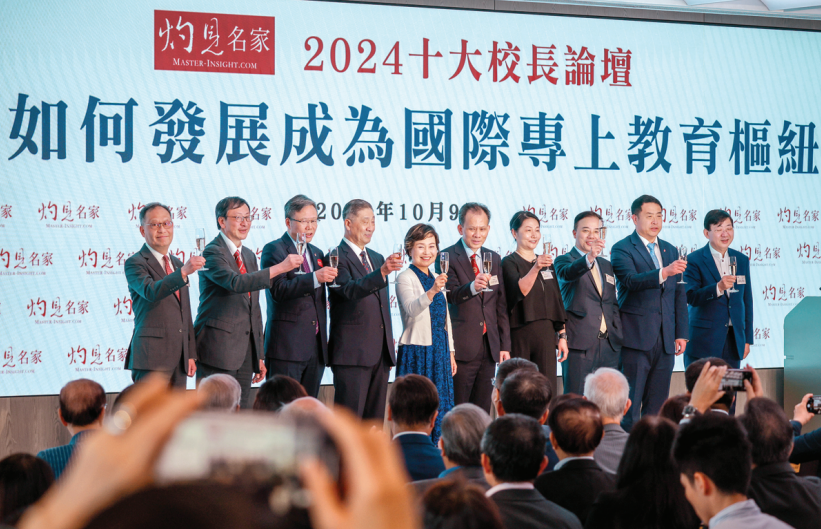City to attract international students and boost diversity to achieve goal

University presidents from 10 leading Hong Kong institutions and their Chinese mainland branches gathered at a high-level forum on Wednesday to discuss the development of higher education in Hong Kong and its associated challenges.
The education leaders embraced the goal of establishing Hong Kong as an international hub for postsecondary education, emphasizing the need for increased student and researcher diversity, a more comprehensive university evaluation system, and proactive solutions to address challenges.
In his Policy Address last year, Chief Executive John Lee Ka-chiu vowed to develop Hong Kong into an international hub for postsecondary education, proposing measures to take the sector to a higher level, including increasing the admissions quota for nonlocal students, expanding scholarship programs, and increasing hostel places.
ALSO READ: ‘HK universities give students exposure early with corporate affiliations’
Rocky Tuan Sung-chi, president of the Chinese University of Hong Kong, said that the city is just a stone’s throw away from becoming a global hub for education and innovative technology.
He called on the local education sector to attract more international students to underpin the city’s role as an international education hub. The arrival of overseas students can also help address the challenges of a declining population of young people and demands for a diverse talent pool, he added.
Pointing out Hong Kong’s relatively high tuition fees, Teng Jinguang, president of the Hong Kong Polytechnic University, suggested establishing a special loan program for nonlocal students facing financial challenges, in addition to offering scholarships.
Teng also noted the recent increase in applications from Chinese mainland students to Hong Kong universities as a result of escalating US-China tension, and called for initiatives to encourage these students to stay.
John Lee Chi-kin, president of the Education University of Hong Kong, said there is a need for multidimensional growth of Hong Kong’s higher education system.
He said that Hong Kong should offer a variety of resources beyond just elite institutions to cater to a more extensive student demographic.
READ MORE: HK universities called upon to contribute to new quality productive forces
In addition to traditional key performance indicators, he advocated for more diverse evaluation criteria, especially soft indicators that assess universities’ competitiveness, and called for strengthened support for the development of a wider range of institutions.
“For Hong Kong to become an education hub, the education market must be large and diverse enough. Local universities are not rivals, but partners working together to expand the industry,” he said.
The president also called for local universities to actively embrace emerging technologies such as artificial intelligence and apply these technologies in areas such as curriculum development, talent cultivation, and credit systems.
To break through the limitations imposed by the shortage of land, Lingnan University President Joe Qin Sizhao recommended fully tap ping into the resources of the Northern Metropolis and other new development areas. This win-win collaboration will not only help improve the universities’ environment, but also boost remote regions’ high-quality development, he said.
Lu Chun, executive president of the City University of Hong Kong (Dongguan), highlighted the need to better leverage branches in the mainland cities of the Guangdong-Hong Kong-Macao Greater Bay Area, and to foster deeper collaboration with leading technology companies, organizations, and facilities on the mainland.
ALSO READ: Five Hong Kong universities listed among world’s top 100
Zhang Xiang, president of the University of Hong Kong, said that as learning resources become more available and affordable, Hong Kong’s higher education institutions need to ponder how to maintain their appeal to students.
He also called for unified action in the education sector to navigate the complex geopolitical landscape. Noting the trend toward deglobalization, Zhang urged the sector to contemplate how to retain its unique advantage in internationalization and remain competitive.
Contact the writer at amberwu@chinadailyhk.com


